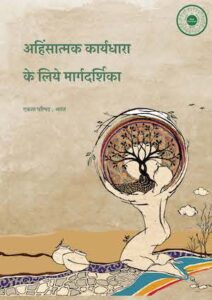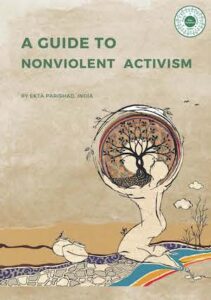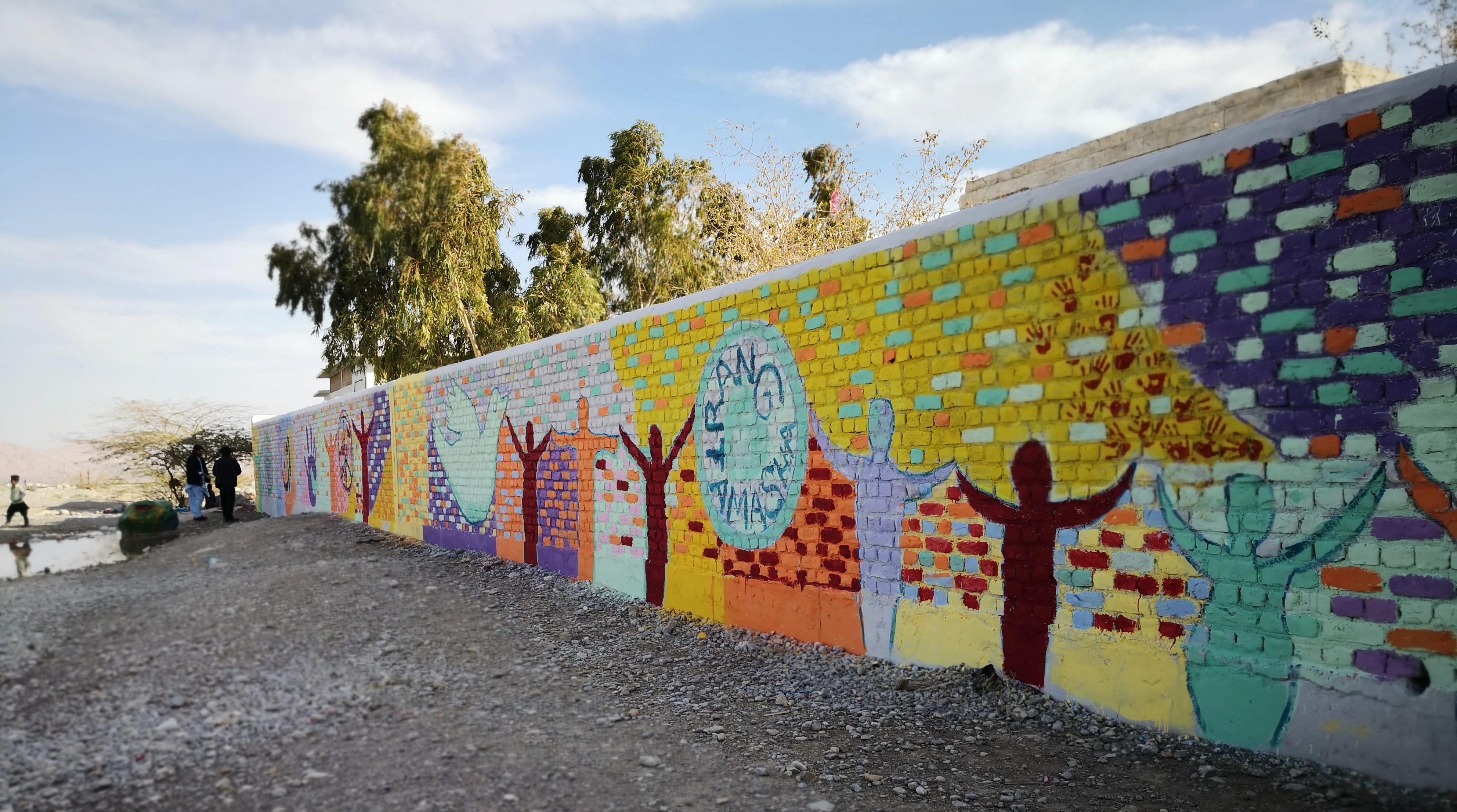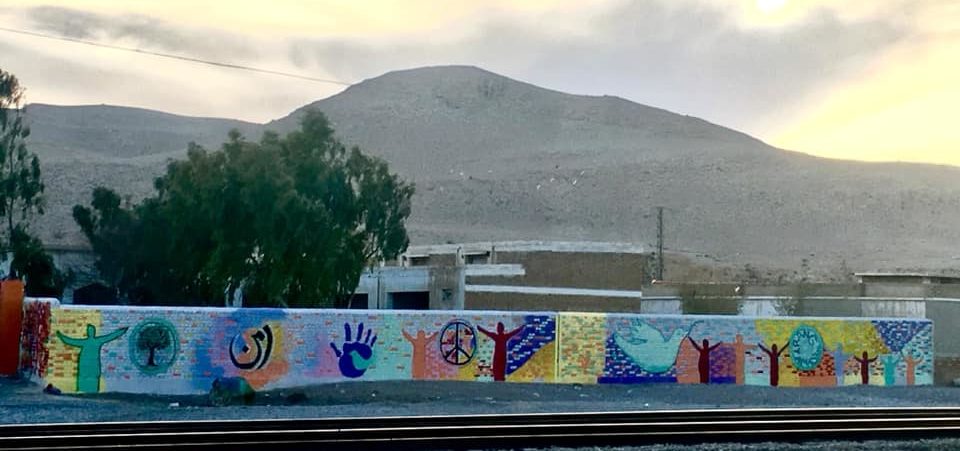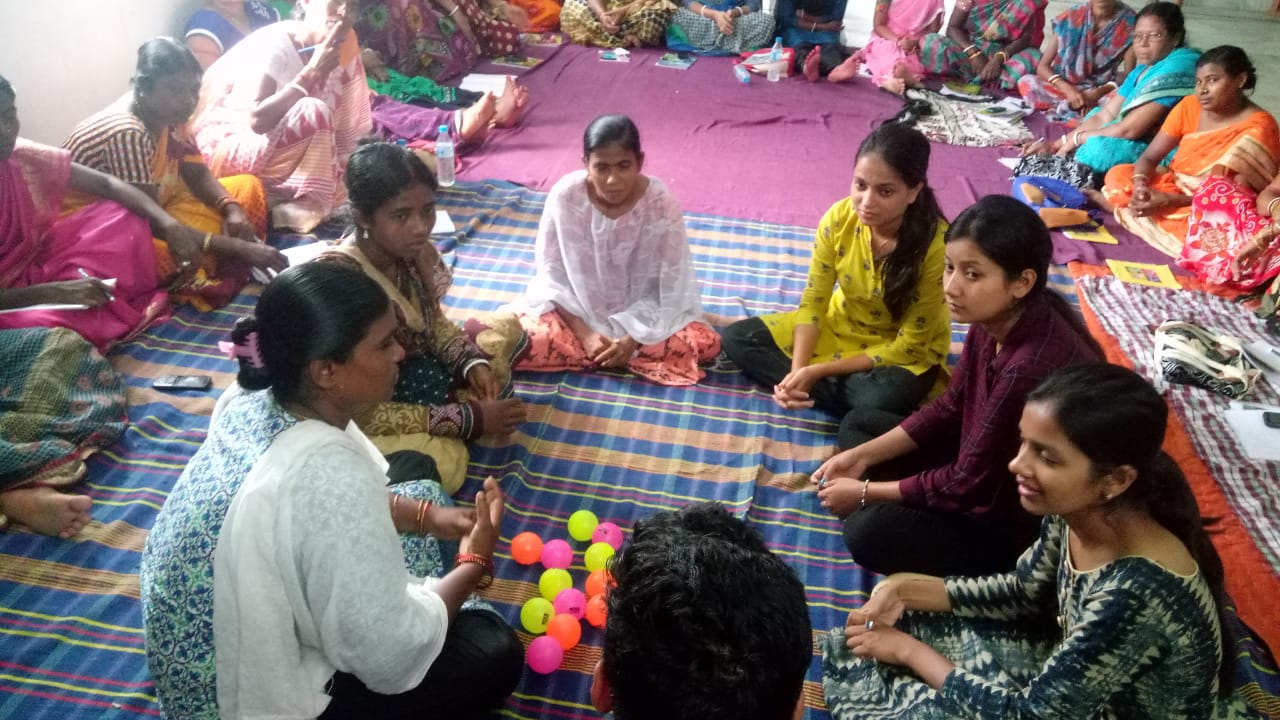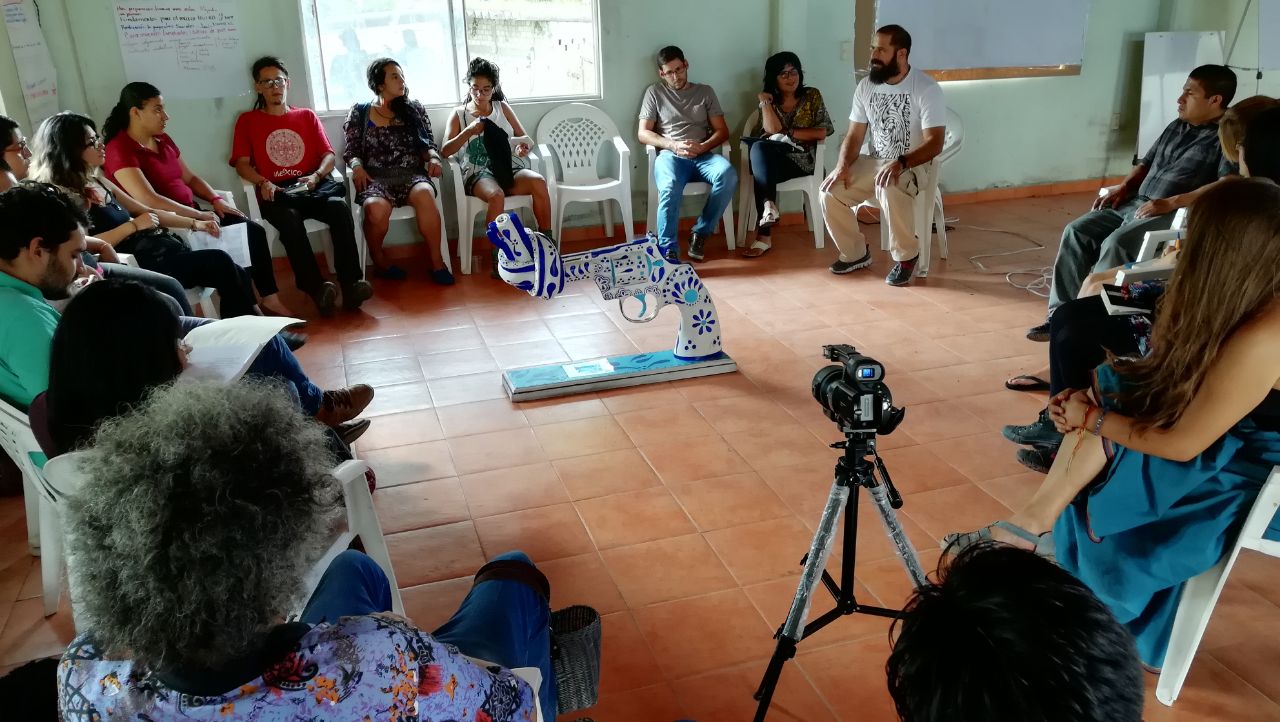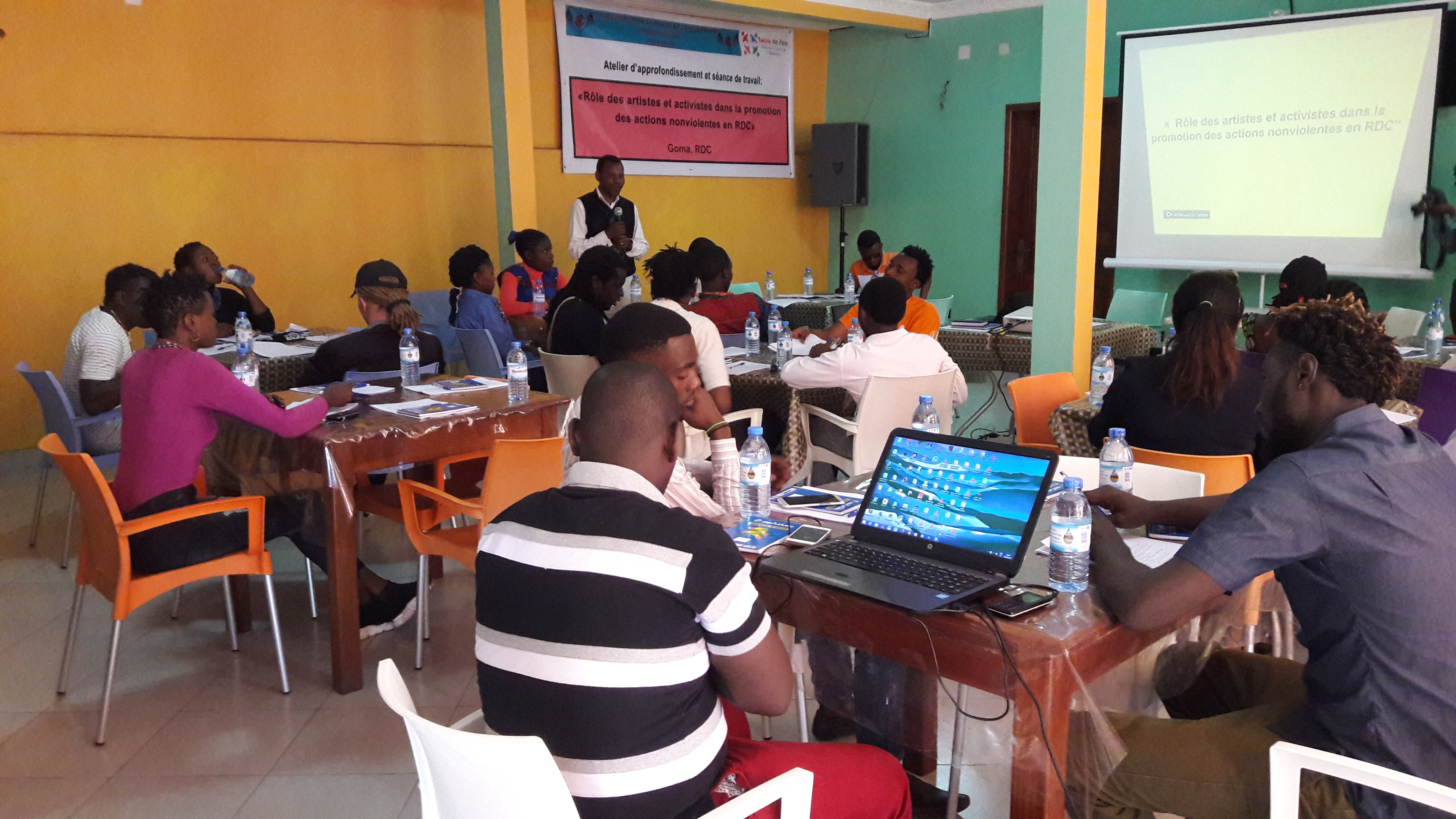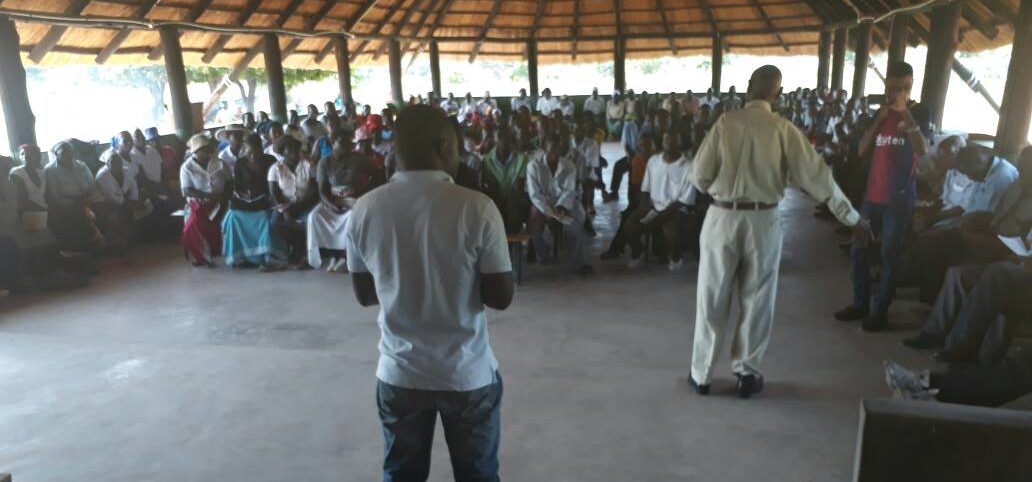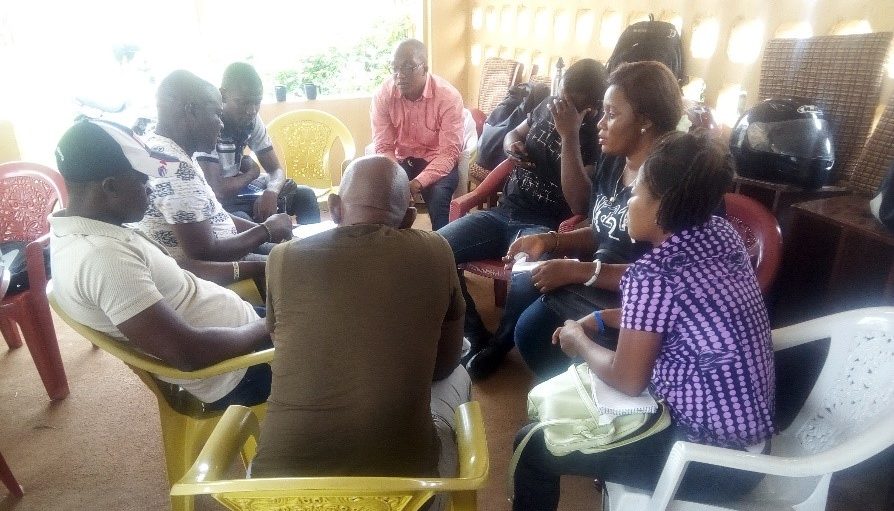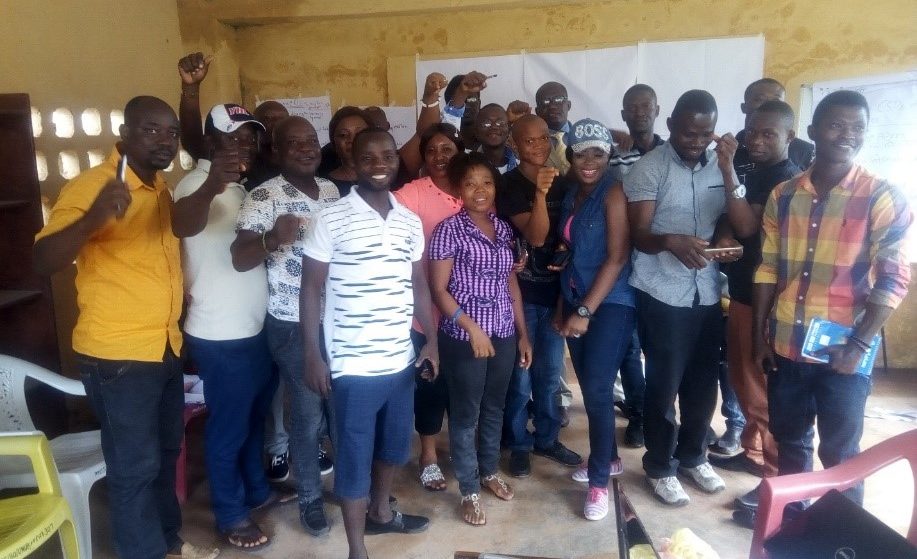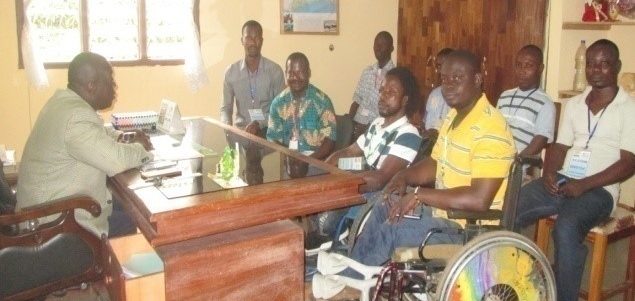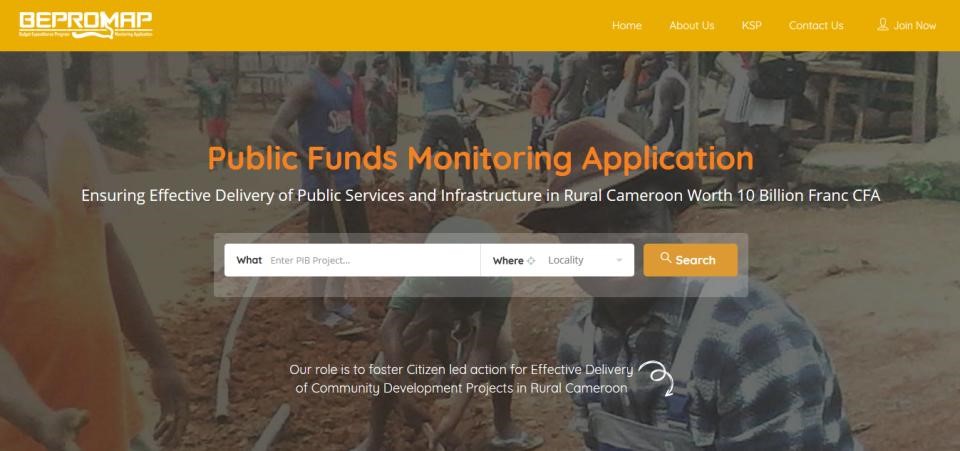Featured Activist Education Grants
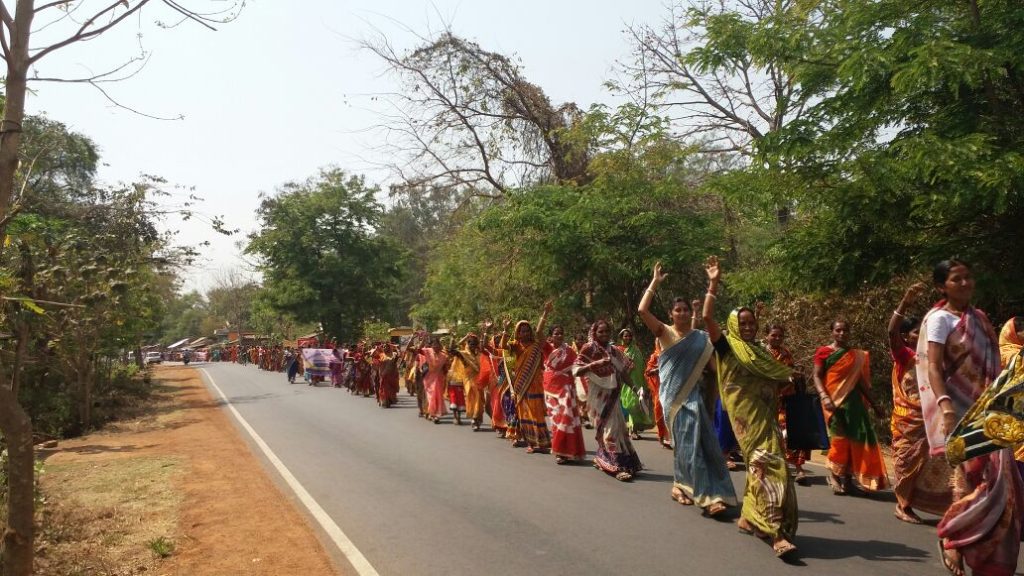
A march on Women’s Day on March 8, 2018 in West Bengal, India to protest against injustice and to demand rights from local government. Source: Arnab Chakraborty, from the project “Building Awareness on Civil Resistance & Nonviolent Movements in India & Bangladesh”
ICNC’s Activist Education Grants have supported the work of 21 grantees in 17 countries on 4 continents. Below is a selection of the work being led by these grantees, with summaries or excerpts from their project reports.
Prior to receiving Activist Education Grants, many of these grantees received support through our Learning Initiatives Network (LIN) program. You can read more about their past work with LIN here.
2019
Establishing Regional Hubs for Civil Resistance Education in Cameroon
Regional Fellowship on Nonviolent Discipline and Democracy [RENOD]
International Governance Institute’s Focal Integrity Team for Cameroon (FITCAM), Cameroon, Activist Education Grantee – December 28, 2018 – December 9, 2019
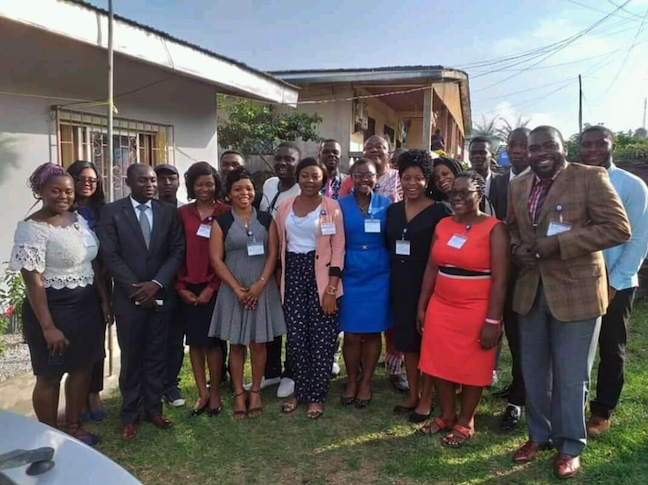
Facing demand for reforms, an open society, and democracy, combined with a desire for greater self-determination in Anglophone regions, Cameroon has faced nonviolent protests as well as an armed uprising in recent years. Violence and conflict propaganda have made youth particularly vulnerable to recruitment by armed groups. International Governance Institute’s Focal Integrity Team for Cameroon (FITCAM) responded by creating the Regional Fellowship on Nonviolent Discipline and Democracy [RENOD] in the Southwest Region of Cameroon, focused on the city of Buea. RENOD is a learning network for young activists seeking nonviolent change in their communities.
RENOD’s activities consisted of two, four-day workshops reaching a total of 40 participants, and then two, one-day follow-up mentoring and support workshops that helped people improve and apply practical skills in community organizing and nonviolent mobilization as an alternative to violence. By serving as a regional training hub, the project aimed to provide the necessary educational infrastructure to oppose narratives of violent extremism that are ravaging communities in the Anglophone regions of Cameroon.
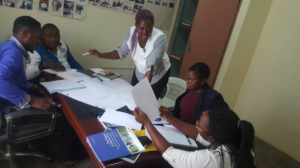
Thereafter, trainees deployed to the field where they applied their learning against persistent narratives of violence, armed struggle, and youth enlistment in violent conflict. The project has further indirectly impacted more than 700 additional activists and groups. Examples of this impact include RENOD’s engagement with key women leaders who participated in the Grand National Dialogue on the Anglophone crisis; the submission by a RENOD member of a 13-page set of recommendations to the Grand National Dialogue on how to resolve the Anglophone crisis; and most importantly, significant distribution of civil resistance educational materials and lessons learned to activist groups.
For example, the Commonwealth Youth Ambassador for Cameroon engaged more than 200 youths on the materials and learning acquired from the RENOD workshop, while the Neola Foundation mobilized, organized, and shared their knowledge through nonviolent and peace learning advocacy campaigns dubbed “Operation Youths Run the World.” Additional engagements with young people prone to violent recruitment and armed groups in enclave villages and hotspots have also been organized by members of the Regional Training Hub to promote civil resistance and nonviolence education.
RENOD plans to continue organizing facilitation meetings to share experience on the work of the Hub with member activists and also to expose new members to nonviolent action tools and strategies.
Preventing Violence through Civil Resistance Education in Burkina Faso
Preventing and Responding to Violent Extremism, Radicalization, and Terrorism in Burkina Faso
Centre for Research and Action in Africa (CR2A), Ouagadougou, Burkina Faso, January 1 – December 31, 2019
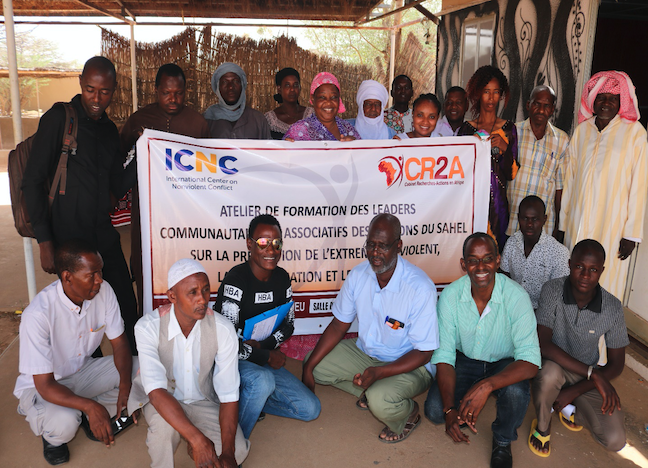
With Burkina Faso facing complex challenges of democratization and the threat of violent extremism, Centre for Research and Action in Africa (CR2A) determined that educational programs on civil resistance could have a positive impact on both.
This project consisted of three, three-day workshops that reached 75 community leaders, religious leaders, and leaders of civil society organizations in the cities of Ouahigouya, Dori, and Gorom. Follow up field visits were also conducted.
CR2A further organized three community dialogues and theatrical performances on civil resistance and approaches to countering radicalization that reached 600 community members in three areas of the country, as well as three radio programs on this topic.
In the immediate aftermath of the workshops, community dialogues, and radio programs; prominent community members engaged in knowledge sharing and outreach to young people to reduce their vulnerability to recruitment by extremist groups. It was observed that subsequently, these areas experienced a corresponding resilience against youth recruitment to extremist groups relative to adjacent municipalities where no activities had been conducted.
Media articles about the three workshops were posted in the period Faso Nord:
- “Lutte contre l’extrémisme violent au Burkina : Le cabinet CR2A en réflexion avec des leaders du nord et du sahel” February 15, 2019
- “Extrémisme violent, radicalisation et terrorisme : La résistance civile comme antidote” March 28, 2019
- “Lutte contre l’extrémisme violent dans le Sahel : la résistance civile au centre d’un atelier de formation des leaders communautaires” May 8, 2019
Nonviolent Action Capacity Building in Côte d’Ivoire, Part II
Addressing Democracy and Social Issues through Nonviolent Struggle in Côte d’Ivoire
Action et Humanisme, Abidjan, Côte d’Ivoire, January 1 – December 31, 2019
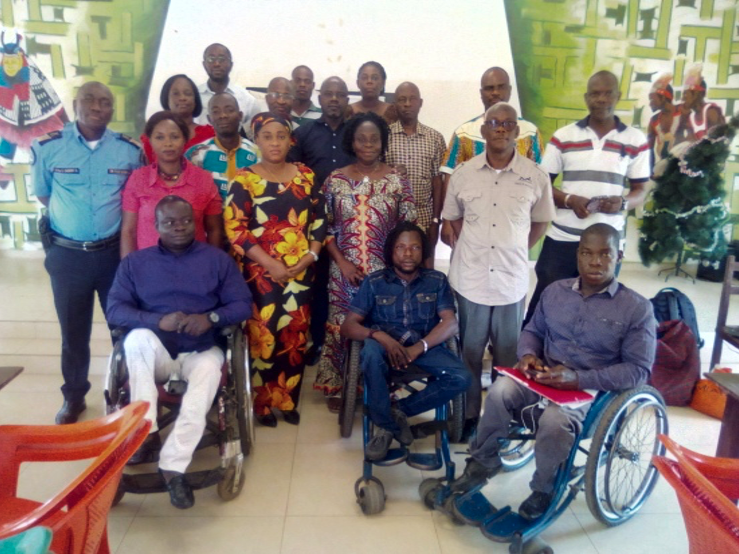
As an extension of their previous ICNC grant-funded activities, in 2019 Action et Humanisme organized eight, three-day workshops that trained a total of 209 people on a range of topics related to nonviolent civil resistance. Workshops were held in different regions of the country, covering the cities of: Agnibilekrou, Ferké, Bouaké, Bangolo, Gagnoa, Tiassalé, Adiaké, Guitrozon. Each workshop also included film screenings of A Force More Powerful, Bringing Down a Dictator, and/or Orange Revolution.
It is estimated that workshop graduates shared knowledge with at least 1,672 people, who therefore were indirectly impacted.
In addition, extensive hard copies of materials on civil resistance were distributed, including 209 copies of a training manual, Cours sur les Luttes Non-Violentes, produced by Action et Humanisme executive director Ahouty Kouakou.
Encouraging and Advancing Nonviolence Towards Better Responsive Democracy
Prayog Samaj Sevi Sanstha, Activist Education Grantee, October 2018 to October 2019
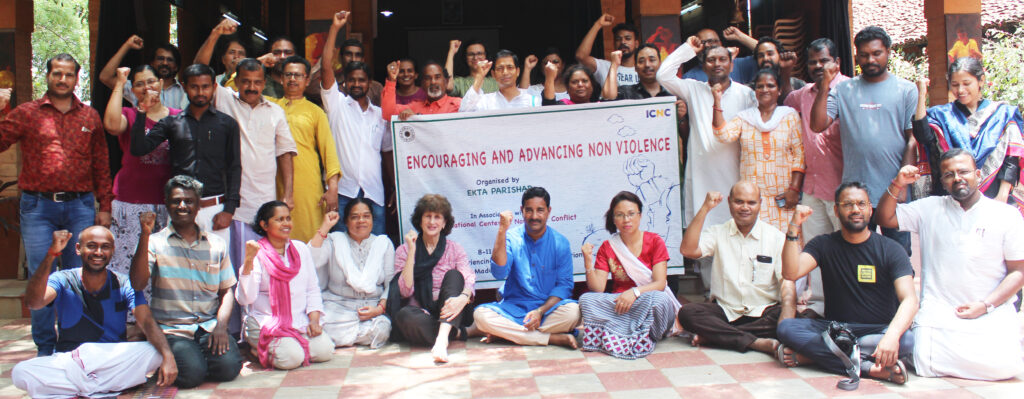
This project created educational resources to advance a deeper understanding of nonviolent action for constructive democracy. These resources are based on the experience and examples from one of the largest nonviolent land rights movements in India, Ekta Parishad. PRAYOG provides leadership training for social activism to thousands of grassroots activists from all across India and has been associated with Ekta Parishad for three decades. This type of social education is extremely significant for India, where millions of poor people struggle for their democratic rights but are also pushed towards structural and physical violence. There is an urgency to re-establish people-centered democracy through nonviolent activism.
The grant supported Prayog’s development of a manual in English and in Hindi titled A Guide to Nonviolent Activism, and a short documentary film on nonviolent activism education titled AHIMSA.
As part of the grant, Prayog also trained 38 diverse grassroots activists, practitioners and community leaders, developing the training manual after an in-depth consultative process with participants. Senior Gandhian leaders and eminent social activists were also interviewed for the production of the manual and film. The manual is available at Ekta Parishad’s website: www.ektaparishadindia.org. These resources are now used by many organizations, institutions and individuals for their training programs and for future civil resistance actions.
Strengthening Activism Infrastructure and the Roles of the Arts in Civil Resistance
Capacity Enhancement for Civil Resistance and Nonviolent Movement Building in the Democratic Republic of Congo (DRC)
Femmes Unies pour la Paix et le Développement (FUPADECO), Democratic Republic of Congo, Activist Education Grantee – January 1, 2019 – July 31, 2019
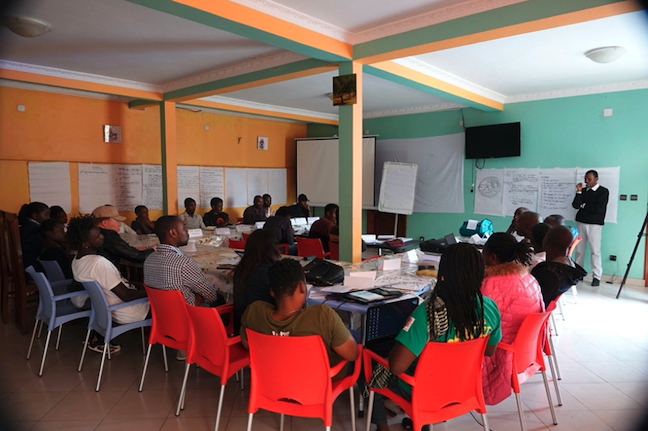
This project built on civil society groups’ experience with community organizing and civil resistance in order to increase the number of trained activists and artists in North and South Kivu provinces. It was an extension of a previous ICNC grant-supported project to expand platforms for young activists in the DRC to engage in movement building at provincial and national levels.
FUPADECO conducted a two-day forum in Goma on the theme “understanding nonviolent actions and social media” which involved 35 participants, including activists and members of civil society organizations. A three-day training on movement organizing and civil resistance was subsequently organized in Bukavu for 32 participants. The project further helped to found two new nonviolent activist collectives and the creation of WhatsApp and Facebook groups for members to stay connected and to share information and experiences.
Extensive meetings with activists in three different provinces were also held, which led to the distribution of 115 copies of Guide de la nonviolence active: Introduction à la résistance civile et actions nonviolentes (an introductory handbook on civil resistance developed during the previous grant project) as well as other educational materials (films, booklets). After one such meeting the group “Les amis de Nelson Mandela” published an article about methods and tactics of nonviolent actions in “Debout congolais” the website of a movement fighting for women rights and promoting new approaches of advocacy.
The project also continued supporting the development and promotion of civil resistance education through artistic performances, which had begun in the previous year. Two artistic performances were produced—a song and a ‘slam.’
The song entitled “Levons-nous” honors victims of violence and calls for mobilizing the public to commit to nonviolent actions until there is no more oppression and unjust and unfair systems. The slam “Oh Peuple” addresses the people, showing them the impact of fear on the persistence of oppression. It also explores how committed and disciplined communities can yield power and end with oppression, highlighting examples of successful nonviolent movements.
An outcome of the project activities was that activists were able to meet and discuss how movements and campaigns in DRC have evolved since the struggle for a peaceful transition of power was won after the elections of December 2018. Activists with specific roles in recent nonviolent actions participated, including those fighting for women’s rights, demanding fair rates from telecommunication companies, and engaged in the struggle for free primary school education in the DRC.
The project has fueled more activities by diverse urban and rural activist groups in the DRC, and FUPADECO received requests from an area college and from civil society groups for guidance, training sessions, film screenings, their handbook on civil resistance, and other learning materials.
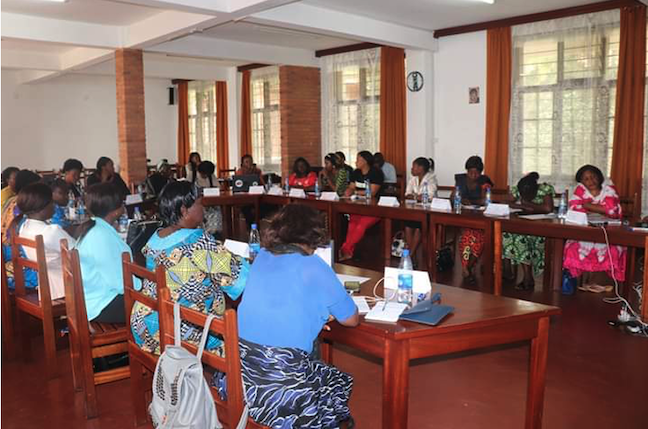
2018
Nonviolent and Peaceful Activism in Pakistan
Training on Nonviolent and Peaceful Activism
Community Advancement & Prosper Society (CAPS), Balochistan, Pakistan, Activist Education Grantee, February 2018 – March 2019
This project supported educational efforts about nonviolent civil resistance at universities and a school in Balochistan, Pakistan to support citizens in mobilizing against violence in their communities.
Four 2-day trainings on civil resistance were held at four universities in Balochistan and reached over 250 students. The grantee introduced key concepts of civil resistance, including work by Erica Chenoweth and Maria Stephan, as well as writings on local civil resistance movements in Pakistan. To support the trainings and future educational initiatives, the grantee planned and filmed two short videos on definitions of nonviolent action and opportunities for such action in Pakistan. One video interviews Pakistani scholars on the history of violence and nonviolence in Pakistan, and the possibility of nonviolent action now. The second video interviews activists from around the world on their definitions of nonviolence. The grantee also undertook several translations into Balochi of documents available in the ICNC Resource Library.
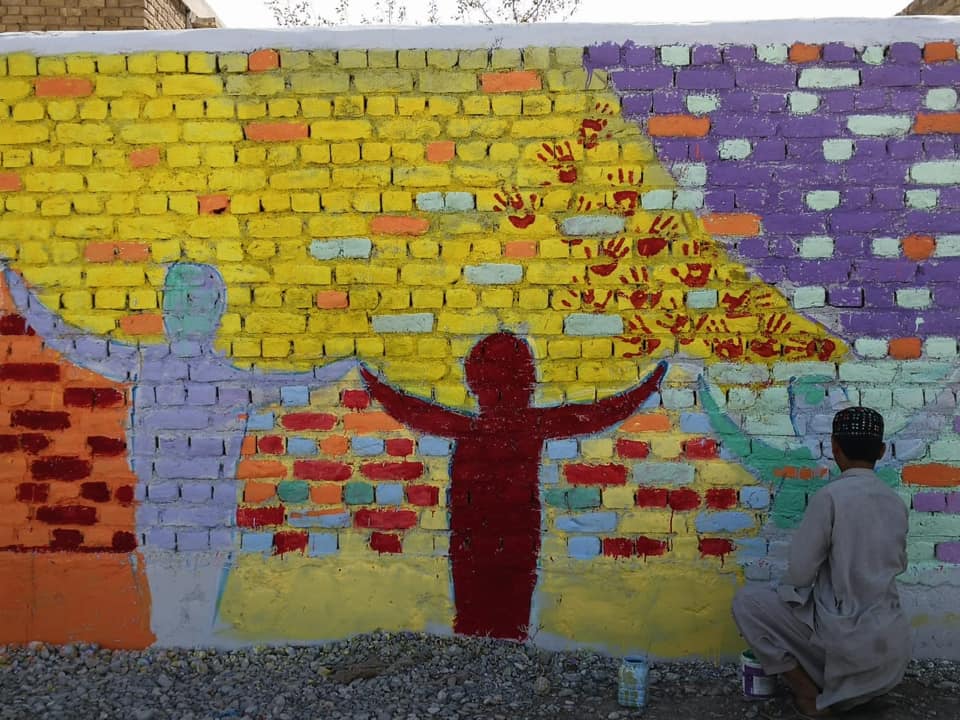 One university student, inspired by the training at her school, worked with the grantee to organize a local training in a rural community. In collaboration with the Human Rights Commission of Pakistan, the grantee held three additional short trainings in other communities, reaching over 30 people, with plans for several more. The grantee also connected over 150 university students as potential volunteers with the Human Rights Commission of Pakistan.
One university student, inspired by the training at her school, worked with the grantee to organize a local training in a rural community. In collaboration with the Human Rights Commission of Pakistan, the grantee held three additional short trainings in other communities, reaching over 30 people, with plans for several more. The grantee also connected over 150 university students as potential volunteers with the Human Rights Commission of Pakistan.
The project culminated with a Paint Festival at a local primary school, in which students painted their school walls with symbols of love, respect, peace, and harmony. The local community, which has experienced significant sectarian violence in recent years, greatly appreciated this project and expressed interest in continuing this program. Students planned to continue the Paint Festival in other local schools, envisioning an extra-curricular activity to empower youth in nonviolent action.
Civil Resistance & Women’s Empowerment in India & Bangladesh
Building Awareness on Civil Resistance & Nonviolent Movements in India & Bangladesh
Arnab Chakraborty, India, Activist Education Grantee, January – December 2018
The project supported marginalized women in India organizing themselves and engaging in nonviolent action to pursue justice in the face of patriarchal violence and repression. The project built on past work from the LIN fellowship and reached new communities.
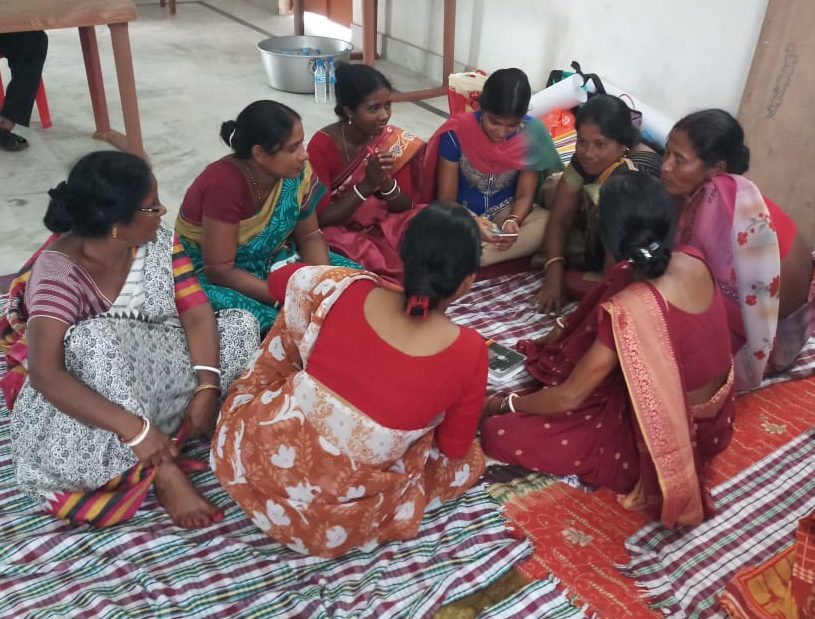 Key project activities included organizing and leading two follow-up workshops (for a total of 38 women previously trained by the grantee), two introductory workshops (to 53 women who were new to civil resistance), and two educational events on civil resistance for 22 NGO leaders from Bangladesh and 11 NGO leaders from India, respectively. The grantee further invited colleagues to participate in presenting material at these trainings in order to mentor them as future trainers and workshop facilitators.
Key project activities included organizing and leading two follow-up workshops (for a total of 38 women previously trained by the grantee), two introductory workshops (to 53 women who were new to civil resistance), and two educational events on civil resistance for 22 NGO leaders from Bangladesh and 11 NGO leaders from India, respectively. The grantee further invited colleagues to participate in presenting material at these trainings in order to mentor them as future trainers and workshop facilitators.
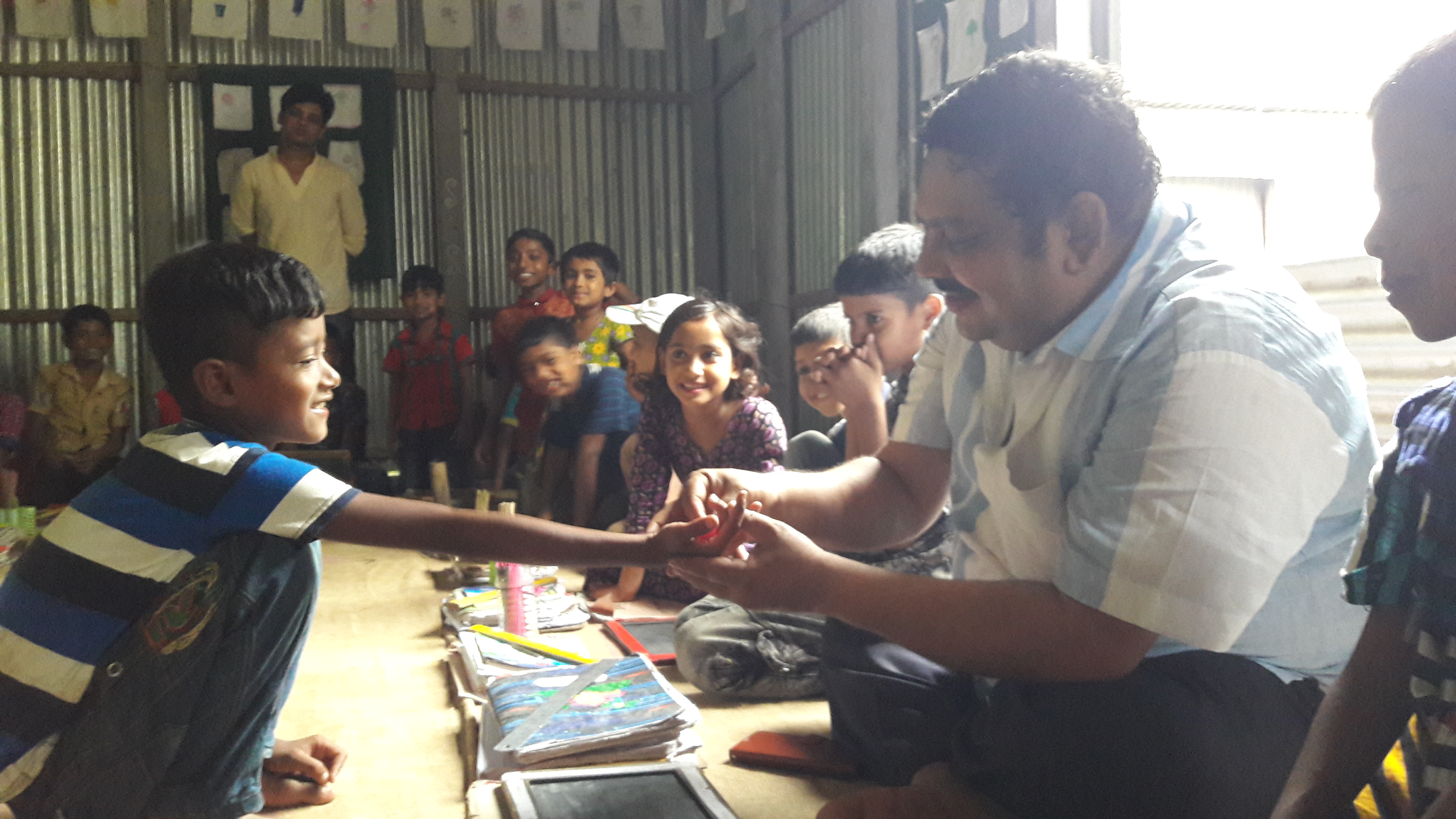 Project outcomes included attitudinal shifts among workshop participants who expressed willingness and motivation to engage in collective action to push for greater accountability among men in their communities and better provision of government services. This led to further specific outcomes, including workshop participants disseminating ideas on civil resistance to 200 women’s self-help groups (SHGs), mobilizing 4,000 women for a demonstration on International Women’s Day, organizing efforts to get the police to crack down on illegal alcohol production, and pressuring a regional bank to hire a manager to serve the local population.
Project outcomes included attitudinal shifts among workshop participants who expressed willingness and motivation to engage in collective action to push for greater accountability among men in their communities and better provision of government services. This led to further specific outcomes, including workshop participants disseminating ideas on civil resistance to 200 women’s self-help groups (SHGs), mobilizing 4,000 women for a demonstration on International Women’s Day, organizing efforts to get the police to crack down on illegal alcohol production, and pressuring a regional bank to hire a manager to serve the local population.
Overall, the project directly reached 91 marginalized women from poor communities in India, 22 NGO leaders from Bangladesh, 11 NGO leaders from India, and 10 staff members from the project coordinator’s organization. The grantee estimates an indirect reach of 2,000 additional women in the target communities, 100 NGO workers from Bangladesh, and 50 NGO workers from India.
Nonviolent Training for Youth Activists in Mexico
Training for the Youth Peacebuilders Network of the Laboratorio Social de la Noviolencia
Global Unity Sumak Kausay, Mexico, Activist Education Grantee, January – November 2018
This project entailed a multi-phase training program in civil resistance, beginning with an eight-week online course, followed by a seven-day residential training-of-trainers (ToT) program, and culminating in locally led projects by graduates of the ToT with the support and guidance of the grantee organization Global Unity Sumak Kausay (GUSK).
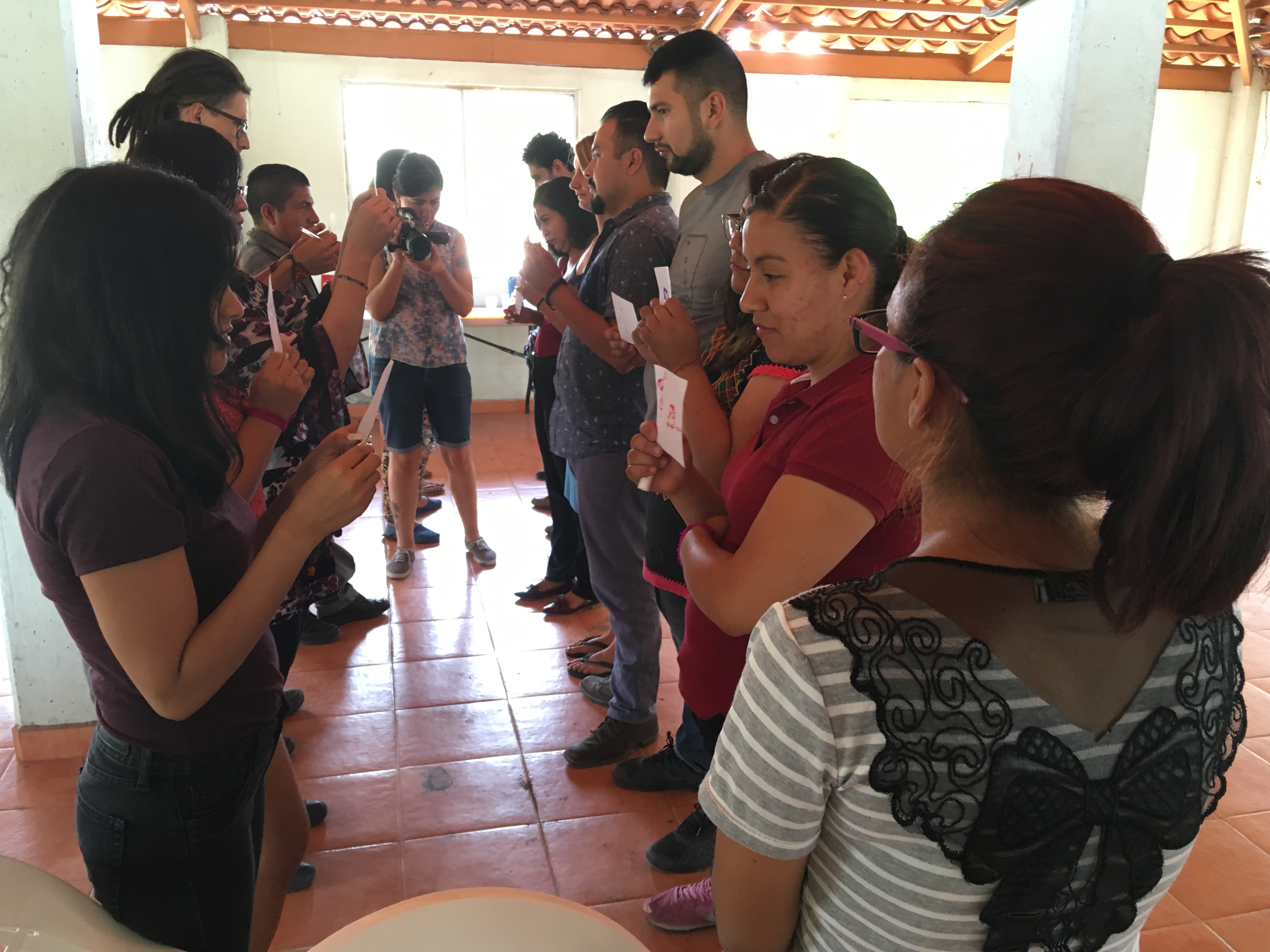 The project’s initial activity brought together 33 participants from across the Spanish-speaking world for a three-module, eight-week online course on nonviolent struggle, civil resistance, and curriculum design. Fifteen of the online course participants were subsequently chosen based on merit to participate in a seven-day national Trainer-of-Trainers program (called the Peace Builders Youth Network), which was organized and led by the grantee. Participants came from several states across Mexico, as well as Colombia and Spain. Activities in support of the training included distributing a Trainer’s Toolkit manual (which had been developed by the grantee in an earlier ICNC-supported project) and producing four educational videos on nonviolent resistance. The grantee also oversaw the successful translation of portions of the training manual into the indigenous Zapotec language.
The project’s initial activity brought together 33 participants from across the Spanish-speaking world for a three-module, eight-week online course on nonviolent struggle, civil resistance, and curriculum design. Fifteen of the online course participants were subsequently chosen based on merit to participate in a seven-day national Trainer-of-Trainers program (called the Peace Builders Youth Network), which was organized and led by the grantee. Participants came from several states across Mexico, as well as Colombia and Spain. Activities in support of the training included distributing a Trainer’s Toolkit manual (which had been developed by the grantee in an earlier ICNC-supported project) and producing four educational videos on nonviolent resistance. The grantee also oversaw the successful translation of portions of the training manual into the indigenous Zapotec language.
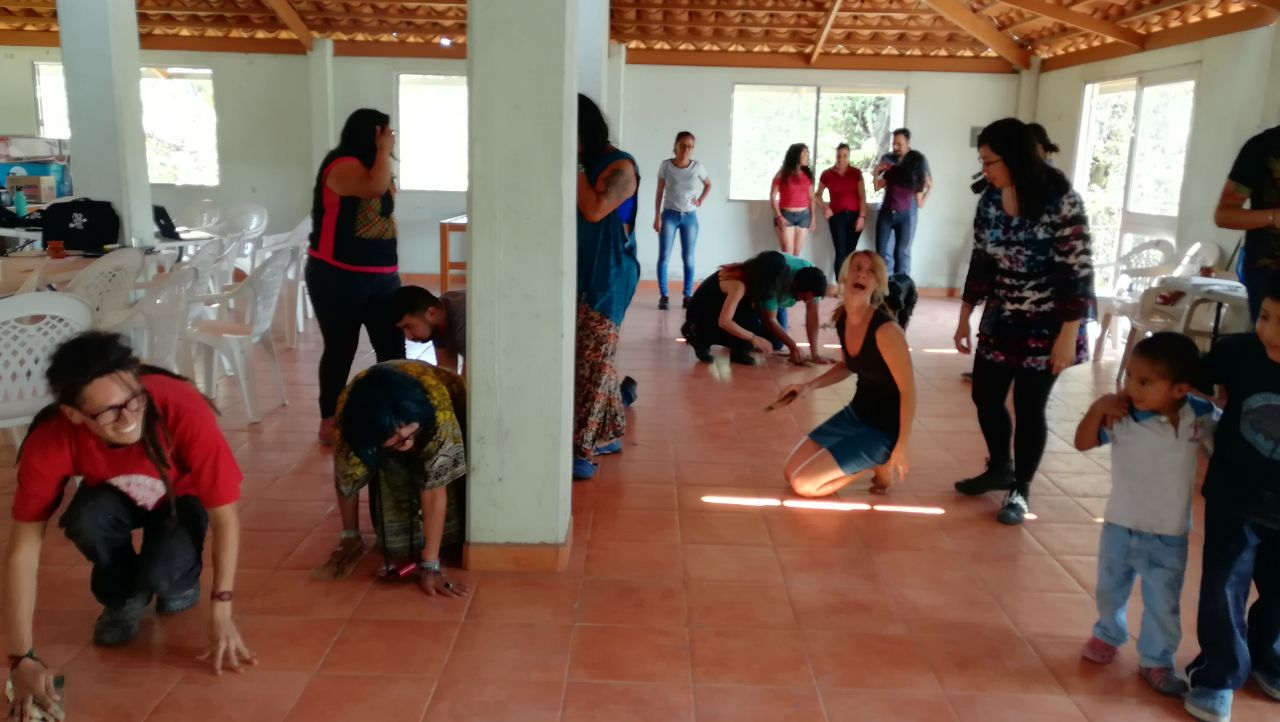 Following the training, the grantee provided assistance to members of the Peace Builders Youth Network in delivering workshops in Mexico, Guatemala, Colombia, and Spain. 13 of the 15 newly trained trainers completed their projects, including teaching university students about civil resistance, educating youth in reducing school violence, empowering indigenous women, educating youth in confronting gender-based violence, and training local communities to protect land rights.
Following the training, the grantee provided assistance to members of the Peace Builders Youth Network in delivering workshops in Mexico, Guatemala, Colombia, and Spain. 13 of the 15 newly trained trainers completed their projects, including teaching university students about civil resistance, educating youth in reducing school violence, empowering indigenous women, educating youth in confronting gender-based violence, and training local communities to protect land rights.
Training Citizen Activism in Madagascar
Learning Initiative Aiming at Nonviolent Actions (LIANA) – Expansion Project
Liberty 32, Madagascar, Activist Education Grantee, February – October 2018
This project expanded Malagasy people’s knowledge about civil resistance by organizing a series of workshops in different regions of Madagascar, followed by the People Power Tournament, which debuted the civil resistance strategy game People Power in Madagascar as a fun and engaging method to help citizens practice nonviolent skills and movement-building in a simulated environment.
The project began with a three-day training of trainers for 15 activists from seven regions of Madagascar, which focused on two areas: (1) skills in teaching and facilitation, and (2) theories of nonviolent civil resistance. The training balanced theoretical and practical content in order to better prepare the future trainers for impactful work.
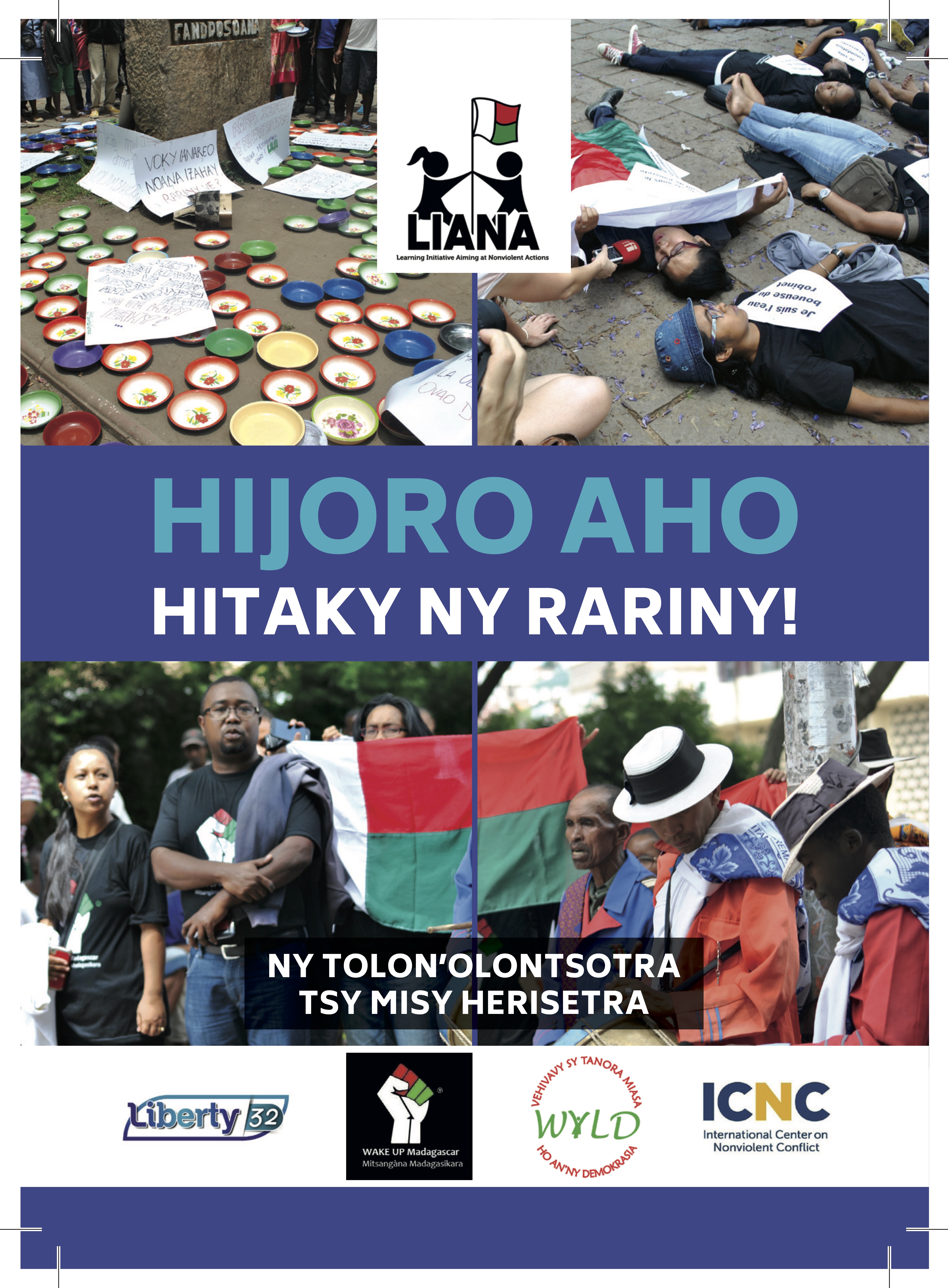 Following the training of trainers, a live radio show promoting the LIANA program was broadcasted on Radio Don Bosco in March 2018. The project then held six, two-day trainings for Malagasy citizens in six regions of the country, reaching 158 people ranging from 17- to 56-years-old. To improve the delivery of these workshops, the grantee updated a training manual produced during a previous ICNC grant to include featured material on three famous Malagasy activists and notable local movements, such as Wake Up Madagascar.
Following the training of trainers, a live radio show promoting the LIANA program was broadcasted on Radio Don Bosco in March 2018. The project then held six, two-day trainings for Malagasy citizens in six regions of the country, reaching 158 people ranging from 17- to 56-years-old. To improve the delivery of these workshops, the grantee updated a training manual produced during a previous ICNC grant to include featured material on three famous Malagasy activists and notable local movements, such as Wake Up Madagascar.
To hold the People Power Tournament, six preliminary contests took place on the last day of each regional training workshop conducted during the grant. Finalists were chosen to participate in a national final round after the regional workshops. The friendly competition used the People Power strategy game (a computer simulation of a nonviolent movement developed in part by ICNC), and the grantee translated descriptions and scenarios within the game into Malagasy. The People Power game proved to be an especially helpful educational tool because it facilitated participants’ grasp of difficult concepts and demonstrated the challenges of maintaining a movement.
Art as Activism in the Democratic Republic of the Congo (DRC)
Strengthening the Capacity of Civil Society Activists and Artists to Promote Civil Resistance and Nonviolent Actions
Femmes Unies pour la Paix et le Développement (FUPADECO), Democratic Republic of the Congo (DRC), Activist Education Grantee, January – July 2018
The project seeks to strengthen artists and civil society activists’ capacities to promote civil resistance and the use of nonviolent actions in the DRC. In collaboration with “Terre de Paix”(T2P), the grantee conducted a two-day, in-depth training for 37 members of nonviolent clubs and produced a Handbook on Nonviolent Civil Resistance (PDF) in French for the DRC context. The project provided technical support to a local nonviolent club in its strategy development for educating the public on nonviolent resistance and assisted nonviolent clubs in developing three artistic works about nonviolent resistance, which incorporated readings, musical acts, theatrical performances, and videos.
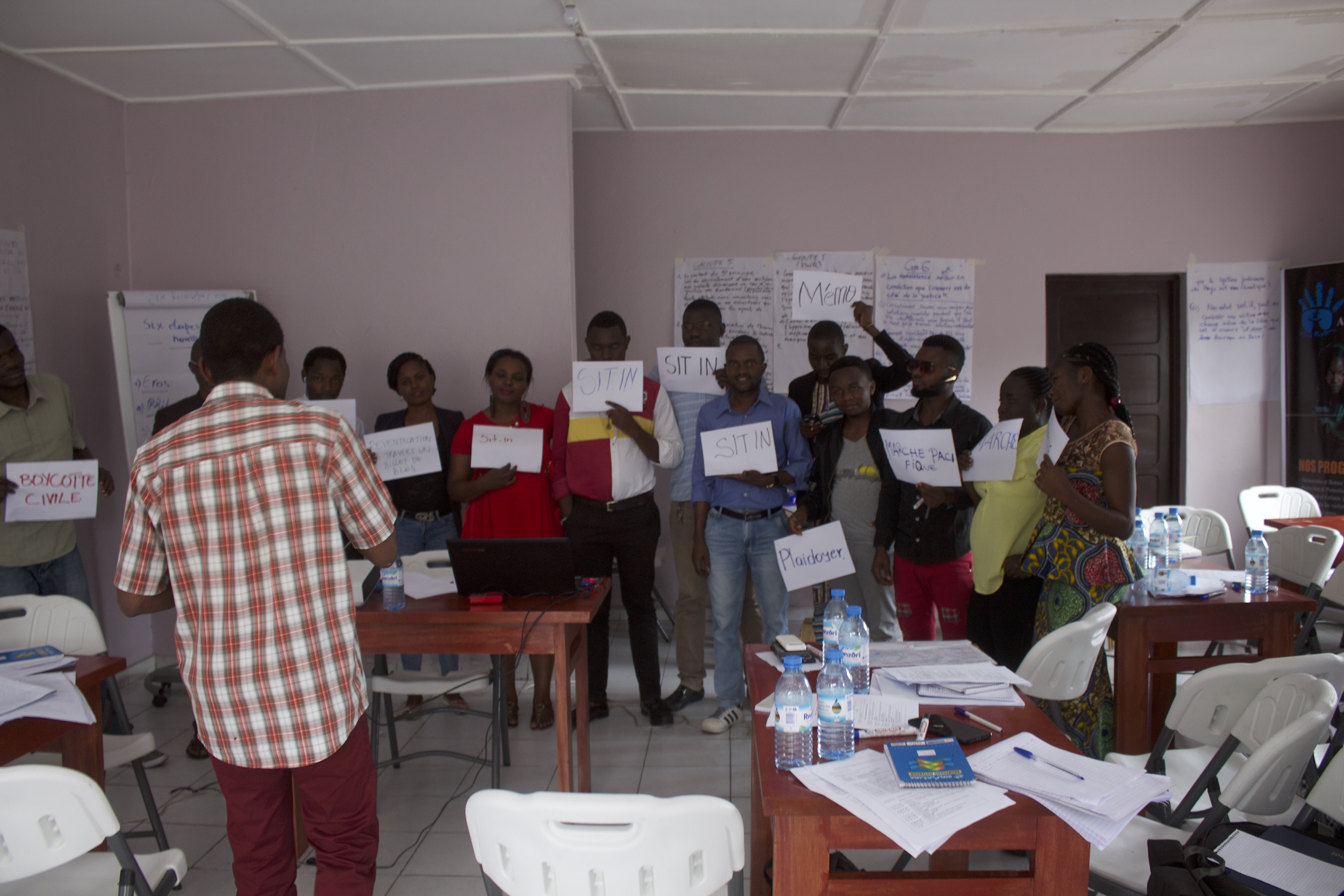 The in-depth training succeeded in transforming the perspectives of a number of participants from viewing violence as an expedient means of struggle to understanding the strategic effectiveness of nonviolent action. The training and artistic productions created a space for networking among activists and artists, which has fueled a better understanding of the role of art in activism and civil resistance in Goma. Several participants of the workshop have continued to create artistic productions focused on activism and to train people in their local communities on nonviolent action.
The in-depth training succeeded in transforming the perspectives of a number of participants from viewing violence as an expedient means of struggle to understanding the strategic effectiveness of nonviolent action. The training and artistic productions created a space for networking among activists and artists, which has fueled a better understanding of the role of art in activism and civil resistance in Goma. Several participants of the workshop have continued to create artistic productions focused on activism and to train people in their local communities on nonviolent action.
As part of the project, the grantee produced the following materials:
- Manual: Guide de la nonviolence active: Introduction à la résistance civile et actions nonviolentes, par Alingwi Ntamirabali Jean de Dieu.
- Poetry Compilation: Pacifier par la lutte
- Song: La force de la Nonviolence
- Song: Je me leve (hymne)
Empowering Victims of Diamond Mining in Zimbabwe
Demanding Justice for Victims of Diamond Mining in Marange
Centre for Natural Resource Governance, Zimbabwe, Activist Education Grantee, January – June 2018
This project empowered the Marange community to demand justice from the Zimbabwe government and diamond mining company, Zimbabwe Consolidated Diamond Company. The project and resulting nonviolent direct action were the first of their kind in Zimbabwe, where after 38 years of authoritarian rule the majority of Zimbabweans are conditioned not to question the government or its proxies.
The project successfully educated and empowered the Marange community in organizing and civil resistance. Key to the project’s success was enlisting the support of two powerful traditional leaders of communities adversely affected by diamond mining. With these two attending most of the civic education meetings, the project received overwhelming support from the community. One of the awareness-raising meetings was attended by the 2 Headmen and 35 village heads.
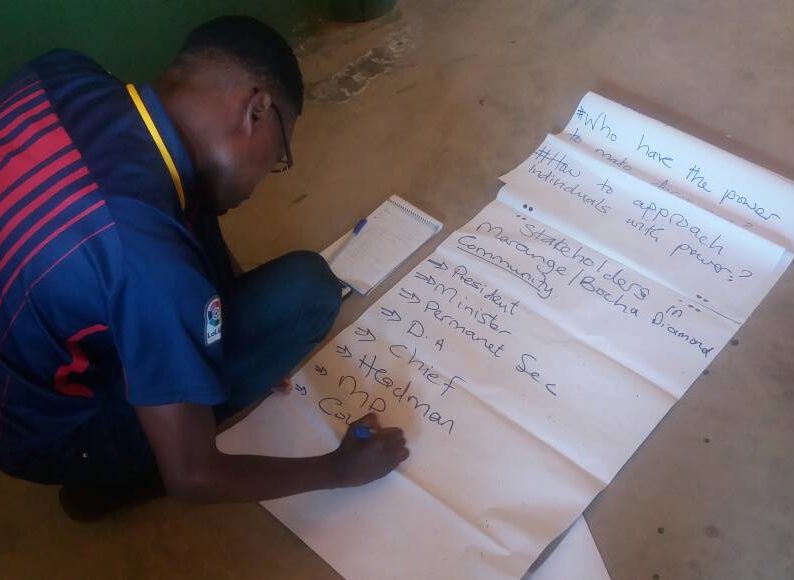 We held 9 workshops on nonviolent civil resistance in advance of the demonstration. 710 people attended the workshops, and more than 30,000 people were indirectly impacted by the project. An estimated 1 million people were reached through social, print and electronic media. We produced flyers for workshops and short videos from the trainings.
We held 9 workshops on nonviolent civil resistance in advance of the demonstration. 710 people attended the workshops, and more than 30,000 people were indirectly impacted by the project. An estimated 1 million people were reached through social, print and electronic media. We produced flyers for workshops and short videos from the trainings.
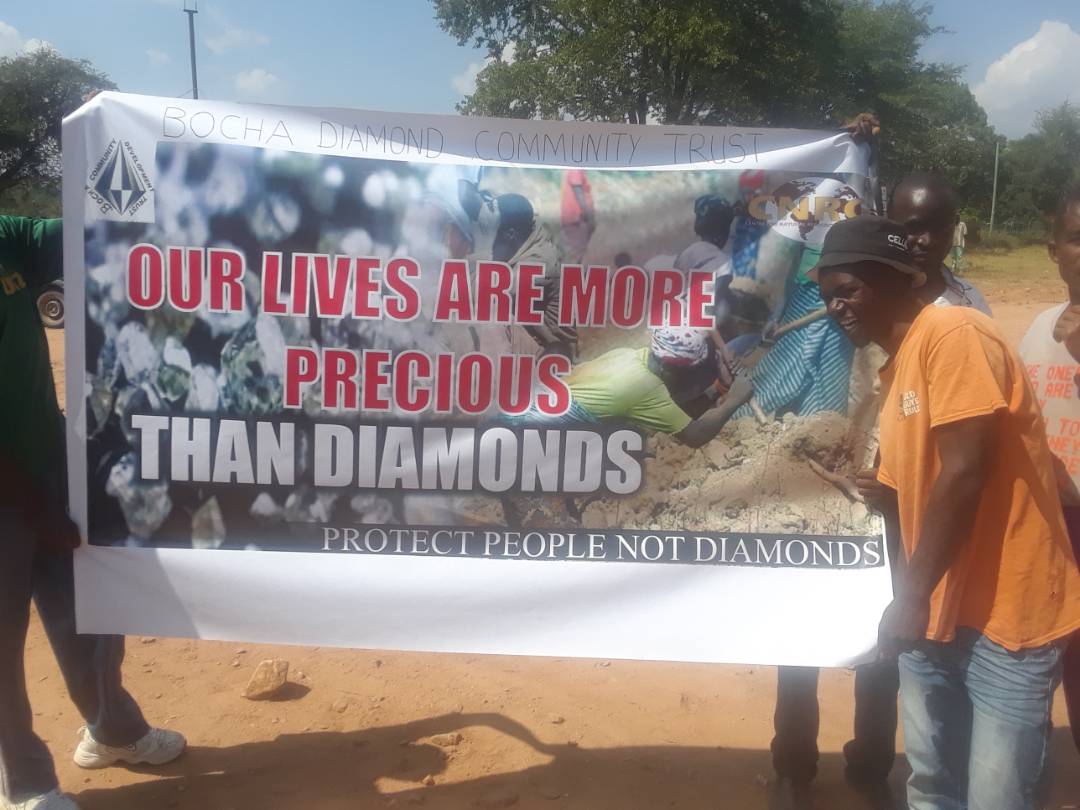 Outcomes and short-term impacts of the educational workshops included a nonviolent direct action by Marange community members against diamond mining, backfire against security force repression, and an invitation to dialogue by the diamond mining company. Several Zimbabwe media outlets reported on the protests in national newspapers.
Outcomes and short-term impacts of the educational workshops included a nonviolent direct action by Marange community members against diamond mining, backfire against security force repression, and an invitation to dialogue by the diamond mining company. Several Zimbabwe media outlets reported on the protests in national newspapers.
2017
Fighting Corruption in Sierra Leone
Popularizing Knowledge and Skills in People Power Approaches to Promoting Good Governance and Fighting Corruption
Foundation for Rural and Urban Transformation (FoRUT), Sierra Leone, Activist Education Grantee, November 2017 – October 2018
In this project, the People Power Movement of Sierra Leone trained citizens in nonviolent skills to resist and overcome repression, corruption, and poor governance. Participants acquired knowledge and skills in planning, organizing, and implementing nonviolent campaigns.
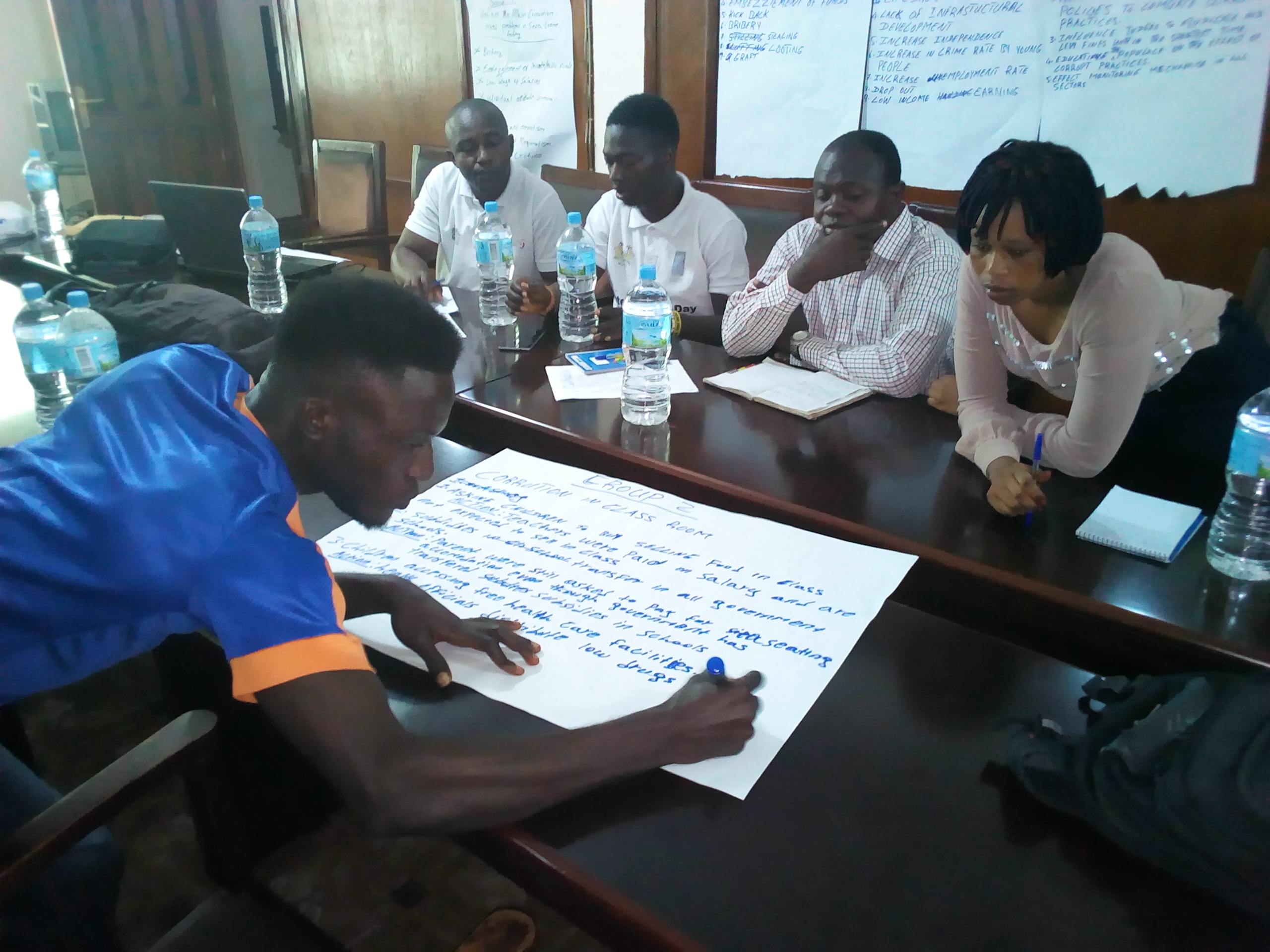 The project organized a series of eight workshops on nonviolent conflict for civil society organizations, which directly reached 156 people. In addition, eight radio discussion programs were held in conjunction with the workshops, allowing the transmission of key ideas to a broader audience of 2,000 people.
The project organized a series of eight workshops on nonviolent conflict for civil society organizations, which directly reached 156 people. In addition, eight radio discussion programs were held in conjunction with the workshops, allowing the transmission of key ideas to a broader audience of 2,000 people.
The grantee developed a training manual and a website on people power and nonviolent activism to further educate the project’s partners, stakeholders, and community members that the People Power Movement serves. A launch event was held for these on May 29, 2019, in Freetown, Sierra Leone, and received TV and radio coverage.
Nonviolent Action Capacity Building in Côte d’Ivoire, Part I
Addressing Democracy and Social Issues through Nonviolent Struggle
Action et Humanisme, Côte d’Ivoire, Activist Education Grantee, July 2017 – June 2018
This project sought to build the capacity of at least 150 civil society leaders on nonviolent actions in Côte d’Ivoire. Trainees came from all parts of the country. Participants included religious leaders, traditional chiefs, representatives of NGOs and associations, administrative local authorities, journalists and students. In total, we organized six, three-day workshops.
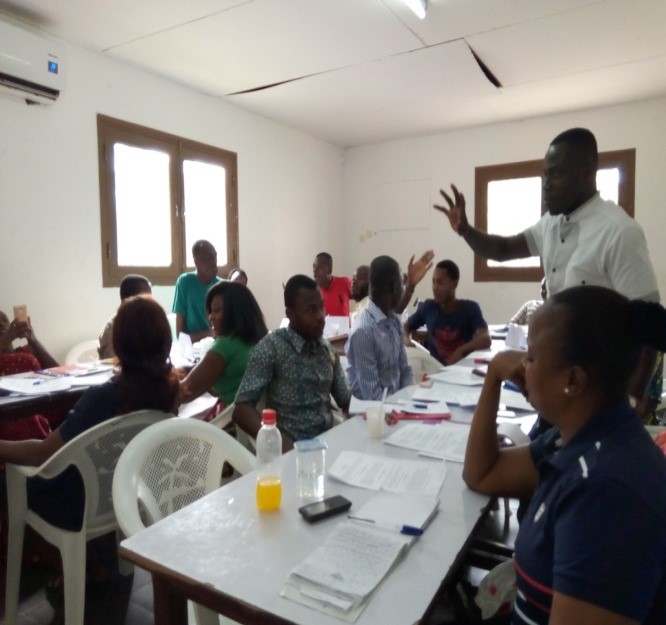 The project trained 157 participants (77 men and 80 women), distributed 160 training manuals to participants, and organized interviews with local radio stations. Workshops were interactive, and we learned skills and knowledge from the participants as well. Participants contributed their ideas and insight through case studies, exercises, and group projects on the topics of the trainings. The workshops contributed to a clear understanding among participants of nonviolent action and related concepts.
The project trained 157 participants (77 men and 80 women), distributed 160 training manuals to participants, and organized interviews with local radio stations. Workshops were interactive, and we learned skills and knowledge from the participants as well. Participants contributed their ideas and insight through case studies, exercises, and group projects on the topics of the trainings. The workshops contributed to a clear understanding among participants of nonviolent action and related concepts.
T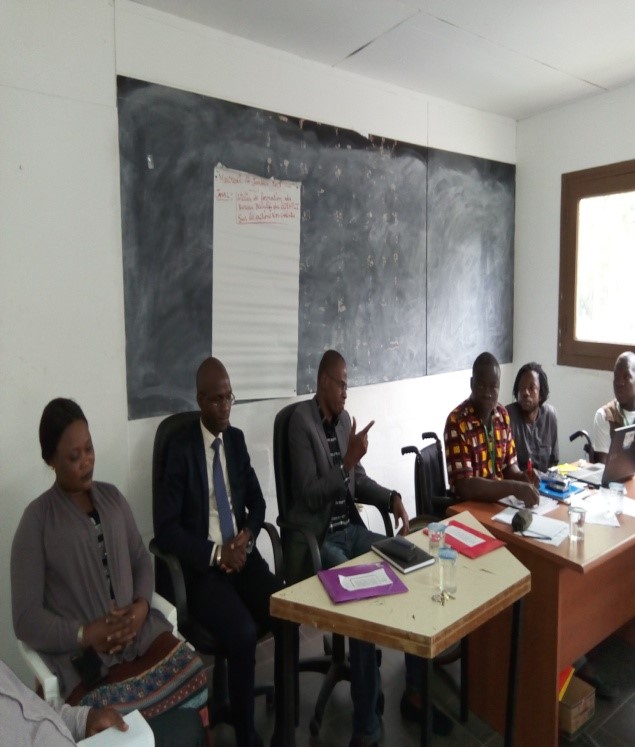 he project engaged local authorities in the workshop’s implementation, who helped recruit participants and provided technical supports like rooms for meetings, boards for workshops, tables, food for project staff, and permission to organize activities in their localities.
he project engaged local authorities in the workshop’s implementation, who helped recruit participants and provided technical supports like rooms for meetings, boards for workshops, tables, food for project staff, and permission to organize activities in their localities.
Several workshop participants became focal points for their regions to ensure that participants replicated their training in local communities. At the time of reporting, 93 of the 157 trainees had begun to disseminate knowledge on civil resistance in their communities of origin.
Accountability for Public Works in Cameroon
Citizen Justice and Accountability
International Governance Institute’s Focal Integrity Team for Cameroon, Cameroon, Activist Education Grantee, August 2017 – January 2018
Cameroon seeks to become an emerging economy by 2035, and as a result the government is increasingly investing in basic infrastructure development and seeking to enhance the delivery of essential services to remote and impoverished local communities. However, the allocation of essential services (e.g., roads, schools, hospitals, potable water) is often unsuccessful due to high levels of corruption in the central government. Every year rural communities face delayed projects, abandoned contracts, and poorly constructed infrastructure.
The project sought to improve information access on public works projects through citizen data collection and nonviolent action training to empower citizens to fight corruption and demand timely completion of basic infrastructure projects in their communities.
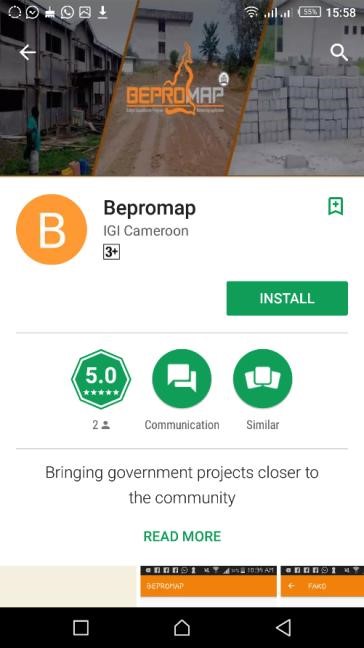 The grantee wrote and developed a mobile app available on the Google App store that allows citizens of Cameroon to record empirical data about incomplete public works projects and send that data to a password-protected database that tracks project progress over time. The website containing the database also offers online training materials in civil resistance so that activists learn how to make use of the information they gather through the public monitoring app.
The grantee wrote and developed a mobile app available on the Google App store that allows citizens of Cameroon to record empirical data about incomplete public works projects and send that data to a password-protected database that tracks project progress over time. The website containing the database also offers online training materials in civil resistance so that activists learn how to make use of the information they gather through the public monitoring app.
A two-day training of trainers (ToT) workshop educated a diverse group of Cameroonian citizens in civil resistance, including NGO workers, clergy, public health administrators, and IT technicians.
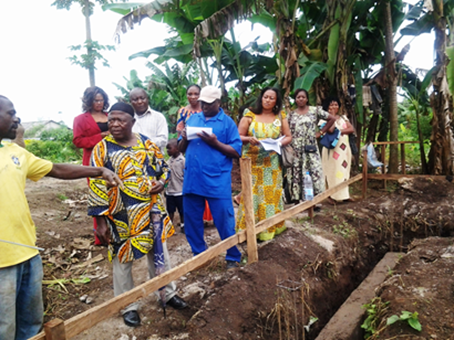 The success of the pilot project has attracted a broader collaboration from the Minister of Public Contracts/Procurement at the Presidency of the Republic of Cameroon, who held a working session with the program team and UK Board of Trustee of IGI to work together towards intensifying and expanding the initiative to other local communities and regions in Cameroon.
The success of the pilot project has attracted a broader collaboration from the Minister of Public Contracts/Procurement at the Presidency of the Republic of Cameroon, who held a working session with the program team and UK Board of Trustee of IGI to work together towards intensifying and expanding the initiative to other local communities and regions in Cameroon.
Nonviolent Education in Honduras
Promoting Knowledge in Nonviolent Civil Resistance in Afro-Honduran Communities
Organización de Desarrollo Etnico Comunitario (ODECO), Honduras, Activist Education Grantee, July – December 2017
Afro-Honduran (Garifuna) communities face significant discrimination in Honduras that contribute to social, economic, and political marginalization and challenges. ODECO works to confront these challenges and demand respect for human rights by educating and empowering members of Garifuna communities, especially youth, in community organizing and civil resistance.
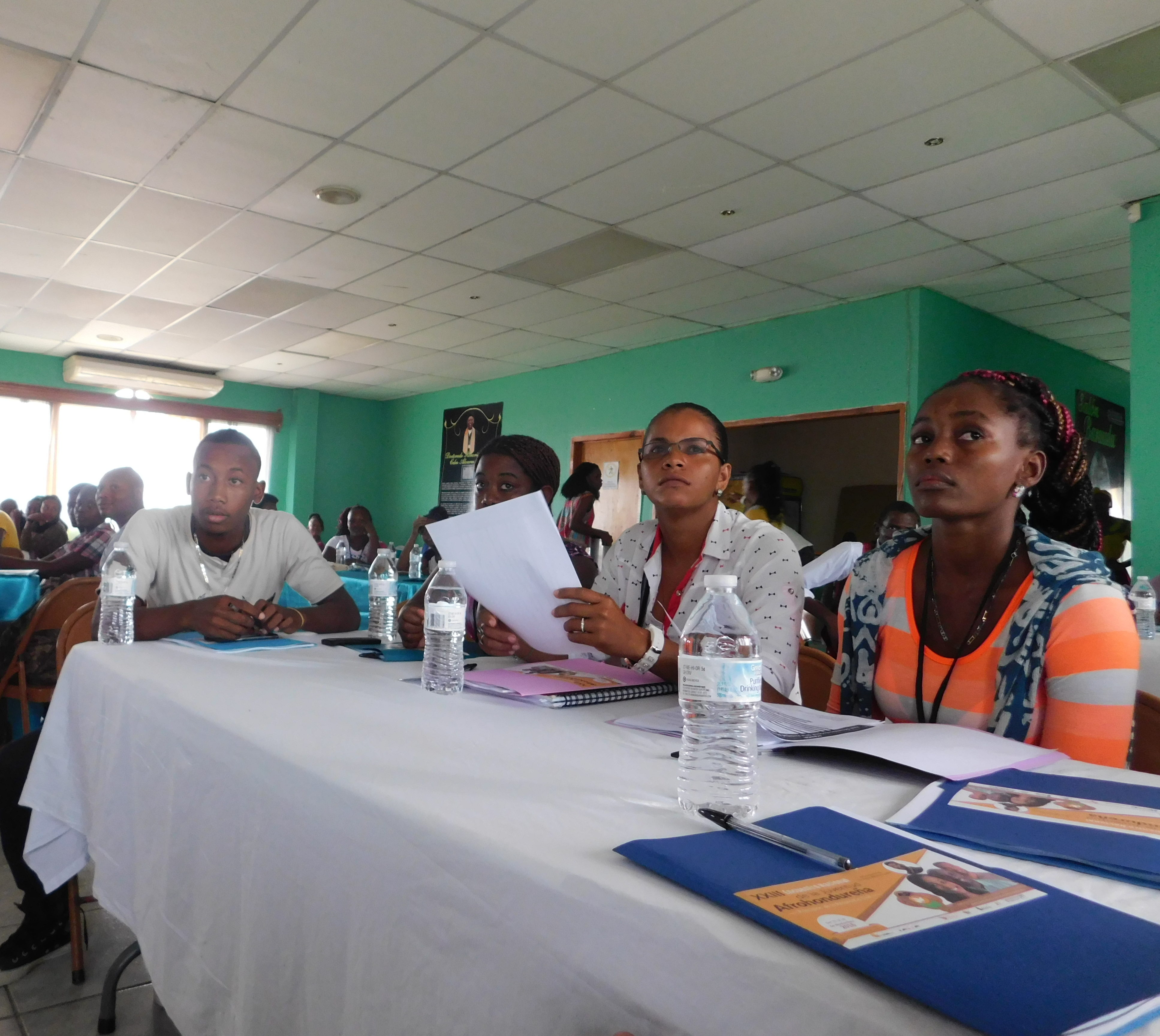 This project built on previous work by ODECO in Garifuna communities by strengthening knowledge and skills of civil resistance and nonviolent actions, with a training focused on the methodology of civil resistance. The ODECO School of African Descent Leadership Training in Human Rights conducted seven workshops on civil resistance for 18 Garifuna communities across five departments in Honduras, with 163 total participants. Additionally, ODECO organized talks in schools and colleges that reached 272 youth and developed three local radio programs on civil resistance and nonviolent action.
This project built on previous work by ODECO in Garifuna communities by strengthening knowledge and skills of civil resistance and nonviolent actions, with a training focused on the methodology of civil resistance. The ODECO School of African Descent Leadership Training in Human Rights conducted seven workshops on civil resistance for 18 Garifuna communities across five departments in Honduras, with 163 total participants. Additionally, ODECO organized talks in schools and colleges that reached 272 youth and developed three local radio programs on civil resistance and nonviolent action.
Workshop participants have gone on to apply their training to work with local community associations. Radio listeners have called ODECO to ask for technical support with applying civil resistance skills and knowledge to their work.
2016
Organizing Civil Resistance Against Corruption
People Power for Good Governance and Anti-Corruption Curriculum: Development of a Civil Resistance Curriculum against Corruption and Four Pilot Workshops
FORUT, Norway, Sierra Leone, Sri Lanka, and Nepal, February-December 2016
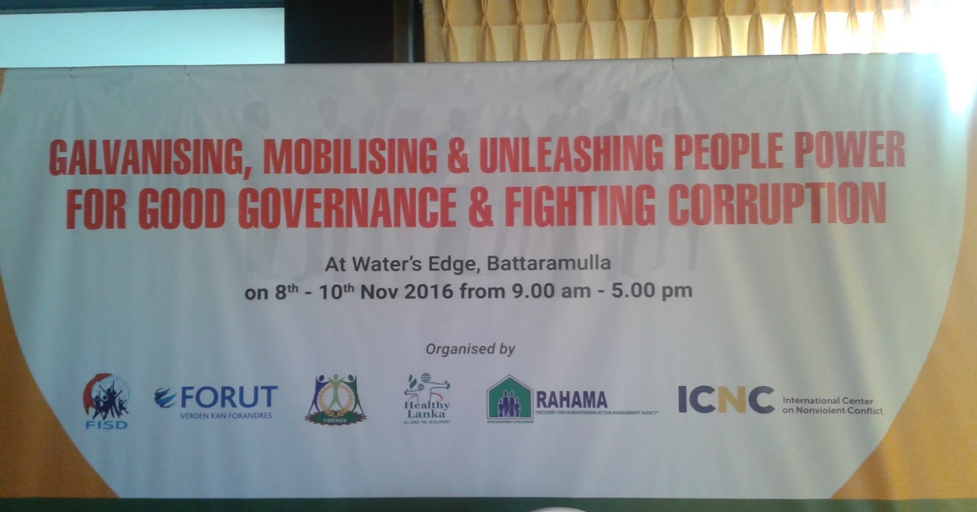
ICNC supported four workshops and the development of a curriculum on civil resistance strategies to fight corruption, and also substantively collaborated on a number of aspects in this project. The Norwegian organization FORUT also provided funding. Workshops were held in:
- Oslo, Norway (two days) for INGO staff working with partners in the Global South;
- Sri Lanka (three days) for local NGO staff;
- Sierra Leone (three days) for local NGO staff; and
- Nepal (three days) for local NGO staff
The workshops reached approximately 100 participants representing more than 75 organizations and coalitions. Evaluations were strongly positive and groups created action plans during the workshop and followed up by organizing campaigns and sharing the knowledge learned through rural workshops and translated materials.
The curriculum manual on civil resistance against corruption, called “People Power to Make Government Work” is available in two versions, tailored for a three-day workshop in the Global South, and a two-day workshop in the Global North. It draws some content from Shaazka Beyerle’s groundbreaking book Curtailing Corruption: People Power for Accountability and Justice and her Freedom From Corruption manual.
